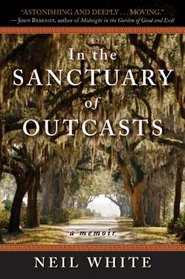Helpful Score: 2
Good read. White's autobiographical morality tale offers an educational look at the last 100 years of leprosy in this country through his sentencing for a white collar crime to the prison adjacent to a Leper Colony on the Louisiana-Mississippi border. Well written intertwining of a Southern boy's come uppance after he tried too hard to keep up an impression of success along with the story of our society's treatment of lepers.
Helpful Score: 2
Interesting, but I could feel the author's ulterior motive all through the book - use prison time to write book make money. Left a bad taste in my mouth.
Helpful Score: 1
A remarkable, true story about a young man's loss of everything he deemed important and his discovery as to what matters most. His description of the isolated colony in Carville, Louisiana and the people that lived there were interesting. It was a piece of history that I did not know existed in the United States. I knew and studied the colony for people disfigured by leprosy on Molokai, Hawaii but the Carville colony was actually in the continental US.
This was an interesting memoir written by Neil White, a man convicted of bank fraud who was sent to the Carville Federal Prison in Louisiana, a place that also served a dual purpose as the last surviving leper colony in America.
This book was very easy to read. It was simply written, honest, self-deprecating, humorous, and insightful. As someone who lives in Mississippi, I probably felt a greater sense of connection to the author and his story since I had my own personal knowledge of many of the people, places, and cultural nuances that were referenced in the book.
I do not doubt that this was a life-changing experience for the author, but a small part of me still wonders about his sincerity, even in the end. I passed on reading his book several times until it was recommended by my book club. In all, I am glad that I read it and feel like it can offer a good take-away message for anyone who reads it. At the very least it made me want to learn more about leprosy and the history of the disease both in the United States and abroad.
This is not earth-shattering literature or even a deeply moving memoir, but it was worth the read and worthy of at least a basic recommendation for others to read it as well.
This book was very easy to read. It was simply written, honest, self-deprecating, humorous, and insightful. As someone who lives in Mississippi, I probably felt a greater sense of connection to the author and his story since I had my own personal knowledge of many of the people, places, and cultural nuances that were referenced in the book.
I do not doubt that this was a life-changing experience for the author, but a small part of me still wonders about his sincerity, even in the end. I passed on reading his book several times until it was recommended by my book club. In all, I am glad that I read it and feel like it can offer a good take-away message for anyone who reads it. At the very least it made me want to learn more about leprosy and the history of the disease both in the United States and abroad.
This is not earth-shattering literature or even a deeply moving memoir, but it was worth the read and worthy of at least a basic recommendation for others to read it as well.




